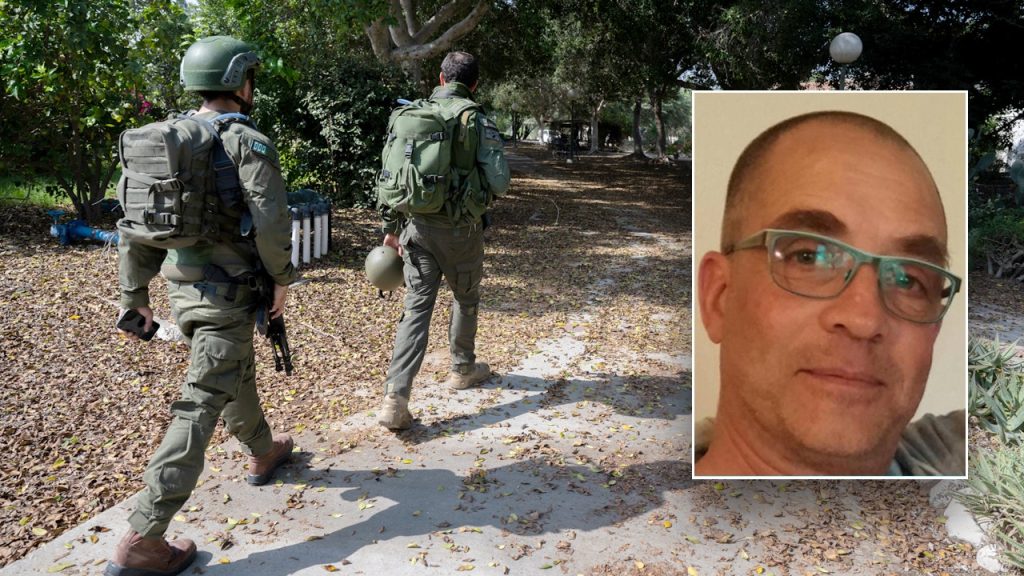Israeli Hostage’s Body Returned After 763 Days
The body of Lior Rudaeff, a 61-year-old Israeli hostage, has been returned for burial after being held by terrorists for 763 days. According to the Israel Defense Forces (IDF), Rudaeff “fell during battle while defending his community during the Oct. 7 Massacre” and was subsequently “taken captive by the Islamic Jihad terrorist organization.” His death was officially confirmed on May 7, 2024, bringing a measure of closure to his family while highlighting the ongoing human toll of the conflict. The return comes as part of a continuing cease-fire and hostage release agreement, though five deceased hostages still remain in Gaza.
Lior Rudaeff’s story is one of remarkable courage. On the morning of October 7th, 2023, when Hamas launched its devastating attack on Israel, Rudaeff joined the emergency response team of Kibbutz Nir Yitzhak and “fought heroically near the kibbutz gate.” According to the Hostages and Missing Families Forum, he successfully “stopped many terrorists” during what they described as a “fierce battle” to protect his community. Despite his bravery, Rudaeff was ultimately killed in the fighting, and his body was taken to Gaza alongside that of Tal Haimi, whose remains were previously returned for burial. Rudaeff’s actions that day likely saved numerous lives in his kibbutz, though the full extent of his heroism may never be fully documented.
Behind the headlines of this conflict are the deeply personal stories of individuals like Rudaeff, whose life was defined by service to others. Born in Argentina, he immigrated to Israel at the age of 7, eventually building a life characterized by generosity and community involvement. Those who knew him described him as having “a generous spirit,” noting that he “volunteered for 40 years as an ambulance driver in the Eshkol Regional Council and as a member of the Nir Yitzhak emergency response team.” His commitment to helping others was unwavering—”He always volunteered first and extended a helping hand to everyone,” according to those close to him. Rudaeff leaves behind a profound legacy of selflessness, as well as his wife and four children who have waited in anguish for over two years for his return.
The return of Rudaeff’s remains occurs against the backdrop of ongoing negotiations between Israel and Hamas. The IDF statement emphasized that they “continue to make every effort to return all the deceased hostages” while remaining “prepared for the continued implementation of the agreement.” The military also stressed that “Hamas is required to fulfill its part of the agreement and make the necessary efforts to return all the hostages to their families and to a dignified burial.” This exchange represents one small step in a complex diplomatic process that has seen intermittent progress amid continued tensions. Each hostage return, whether living or deceased, carries immense emotional weight for Israeli society and particularly for the families who have endured prolonged uncertainty and grief.
As these developments unfold, broader diplomatic initiatives continue in the region. Former President Trump has recently claimed that more nations are preparing to join the Abraham Accords, the normalization agreements between Israel and several Arab states that were brokered during his administration. Kazakhstan was specifically mentioned as a potential new signatory. Meanwhile, security concerns remain heightened, with officials recently revealing they thwarted an Iran-directed plot to assassinate Israel’s ambassador to Mexico. These parallel diplomatic and security tracks illustrate the multifaceted nature of Middle Eastern geopolitics, where peace initiatives and violent plots can develop simultaneously.
The return of Lior Rudaeff’s body provides his family with the possibility of closure through proper burial rites—an important aspect of Jewish tradition—but also serves as a sobering reminder of the human cost of the October 7th attacks and their aftermath. As the Hostages and Missing Families Forum noted, five deceased hostages still remain in Gaza, along with dozens of living captives. Each represents a family suspended in grief and uncertainty, waiting for news of their loved ones. Rudaeff’s story—his immigration to Israel, his decades of volunteer service, his final act of defending his community, and the long wait for his return—embodies both the tragedy of the conflict and the resilience of those caught within it. As diplomatic efforts continue, families on both sides of the conflict hope for resolutions that might eventually lead toward healing and peace.















